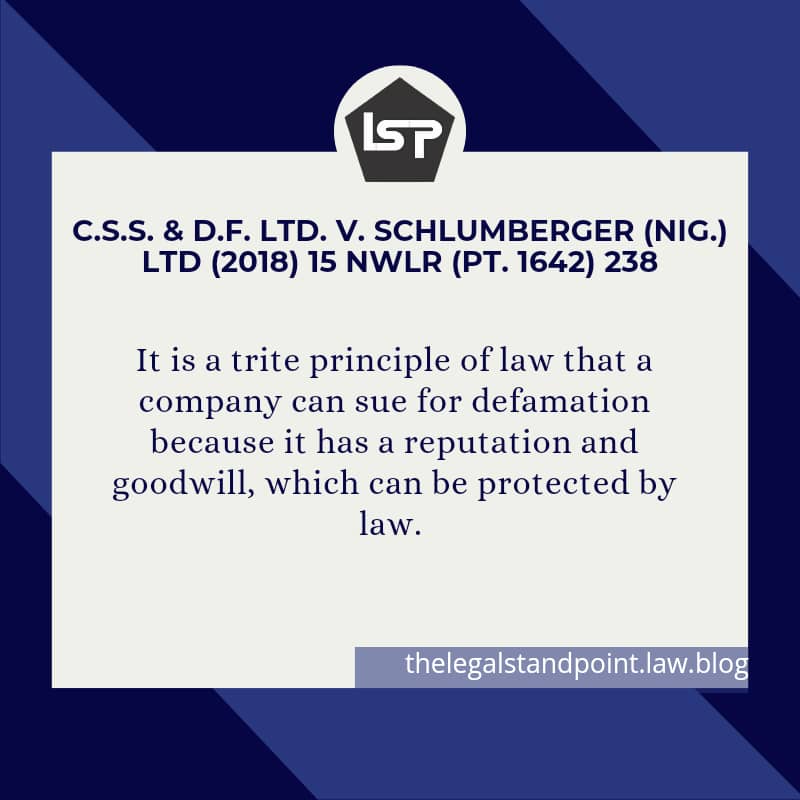
Every person has a right to the protection of his good name, reputation, and the estimation in which he stands in society. Therefore, whoever publishes anything injurious to that good name or reputation commits the tort of defamation. Sketch Publishing Co. Ltd. v. Ajagbemokeferi (1989) 1 NWLR (Pt.100)678.
The tort of defamation is the act of harming the reputation of another by making either a written or oral false statement to at least a person other than the plaintiff.
In today’s analysis, the legal question is whether or not the Tort of Defamation extends to companies in Nigeria. The Courts in a plethora of cases have held in the affirmative.
In C.S.S. & D.F. Ltd. v. Schlumberger (Nig.) Ltd (2018) 15 NWLR (Pt. 1642) 238, the Court held that “A company can sue for defamation. It has a reputation and goodwill, which can be protected. An injury to its reputation can lead to the loss of its goodwill. The courts will, in appropriate cases, protect the reputation and goodwill of a company by an award of damages and injunction. Though a company, being an artificial person, is incapable of having natural grief and distress, this does not mean the same thing as its reputation in the way of its trade and business.“
Similarly in Inland Bank (Nig.) Plc v. F.S. Co. Ltd. (2010) 15 NWLR (Pt. 1216) 395, the Court opined that “A corporation or company can maintain an action for libel in respect of words which are calculated to injure its reputation in the way of its trade or business. Consequently, where a statement is made with regard to the mode in which a trading corporation or company conducts its business, such as to convey to right-thinking members of society generally that it conducts its business in a dishonest, improper, or inefficient manner, the corporation or company can maintain an action for defamation without proof of special damages as if it were a natural person.“
It is noteworthy that a corporate body, unlike a human being, in suing for defamation can only seek damages for a pecuniary loss it has suffered and not for things only possible in personal feelings. Hence, it can sue for loss of profit, a shortfall in turnover, or anticipatory loss but not for natural grief and distress, and not for social disadvantage. Duyile v. OgunbayoSons Ltd (1988) 1 NWLR (Pt. 72) 601
Thank you for reading. See you next week.

